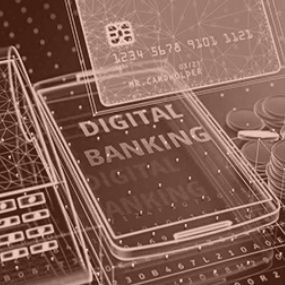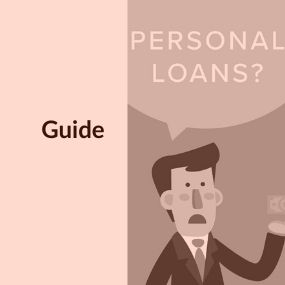
When You Need a Loan and When You Don’t

The concept of borrowing and lending emerged in ancient times with first usurers. Today, various small companies, peer-to-peer networks, individuals, banks, finance companies, and even governments provide these services. It’s not a big deal to borrow money online instantly by sending a quick application.
People are addicted to borrowing. There are almost 200 million American citizens (79% of adults) that have good or bad credit loans online with a total $1.03 trillion credit card debt! Among students only, the situation is even scarier as 45 million people (69% of all students) owe $1.56 trillion.
You can imagine the size of the worldwide debt. Thus, an extremely crucial question appears: do you really need loans? Is it possible to survive without them? Actually, the majority of clients know how to get a personal loan. Instead, the minority is aware of pitfalls. Let’s talk about it.
Table of Contents When You Need a Loan and When You Don’t
How to Recognize When You Really Need a Loan?
We want to begin with an obvious statement: borrowed money must be returned with extra fees. Say, you can get $100 but will have to return $110. This rule is ultimate. Some people may refinance their debts till the end but it means that their kids will have to return the money.
Thus, you should think twice before taking personal loans from strangers and even from respected banks. Do you really need it? Can you find an alternative? And so on. Here are five questions to ask yourself before applying for any loan.
1. Do I Really Need to Spend Money Now?
Get us right, we don’t think that you have to refuse an urgent operation or ignore your children's education. But, actually, a lot of things that seem necessary are not. It’s not a big deal to buy a new car or spend a vacation in Utah instead of Maldives.
Solution: instead of borrowing, you can develop a saving strategy to accumulate money.
2. Can I Save on Something?
Well, let’s be honest now: how many times you opted for the best smartphone model instead of a less expensive one? That’s it. You don’t have to buy the cheapest things but you can always do own research to avoid overpaying for brands and unnecessary features.
Solution: buy budget versions of products, e.g. a used car or a lower phone model.
3. How Difficult It Will be to Make Payments?
A loan isn’t disruptive when it leaves enough space for everyday expenses. Means, if monthly repayments interrupt your saving plans or don’t allow to buy food you want, the loan isn’t a good choice. Calculate the debt-to-income ratio carefully.
Solution: don’t borrow money from anybody if the loan will interfere with your life.
4. How Fast Can I Return the Loan?
As well, calculate terms. As a rule, it’s pretty hard to accumulate money or invest in something when you must pay interest rates each month. If it’s a business loan, be sure that the money can boost your revenue.
Solution: consider extra payments to return the loan quicker.
5. What If I Can’t Repay It?
This is the worst thing. Speedy cash installment loans tend to turn into huge debts regardless of the purpose. You can get fired or face unexpected expenses. And skipped repayments lead to a bad credit history that affects your entire life.
Solution: don’t take a loan if you aren’t sure that you can return it on time.
Are There Alternatives to Loans?
Instead of getting a loan and returning interest later, you can find other ways to make a purchase or cover expenses. If the case isn’t urgent, we suggest you to begin making savings right now. Say, take $50 from each salary and put them on deposit or just keep at home.
Andrew Steinway, a 30-year-old accountant from San Francisco, shares his thoughts: «My wife wanted to get us a new car, this shiny Nissan Leaf. She opted for a new model – $30,000. I found a used model for $5,000 so we were able to get it without borrowing».
Basically, there are two alternatives to loans:
- Get a credit card. Ideally, you want to find a 0% tariff. However, regular credit lines with 5-15% interest also are acceptable.
- Use savings. Yeah, no interest rates at all! Own savings are great when you need to make a big purchase. They also can reduce the amount of loan.
What Are the Best Approaches to Borrowing?
Okay, if you realize that your need in a loan is undeniable, then you should be aware of the borrowing process, its rules, requirements, and traps. In the following sections, we will briefly cover the most important points.
Choose a Credit Type
First things first, consider all options of different loan offerings. Obviously, you want to get money fast and without income verification but it’s barely possible without enormous fees. Thus, analyze key parameters and prioritize them:
- Interest rate.
- Total repayments.
- Penalties.
- Terms.
- Documents required.
- Delivery time.
It’s really impossible to get all the best conditions simultaneously. Low-interest and long-term offers will feature significant requirements and checks while emergency cash loans for unemployed persons with IDs only will come with high fees. Choose wisely.
Agree on Terms and Conditions
When the lending company is chosen, contact it and double-check the rules. You don’t want to get hidden costs or unexpected changes in requirements, so consult with experts. As well, it’s a good idea to read reviews about the lender.
Always read contracts. Don’t repeat mistakes of unaware borrowers as Peter Santello, a truck driver from Memphis. He says that he «didn’t check the info and signed a predatory contract with dynamic interest rate. It changed from 3% for the first month to 90% for the last one».
Remember About Repayments
Pay extremely close attention to repayment terms. Calculate how much you can return regularly. Be realistic. If you can pay 100% of the monthly repayment but no more, the loan isn’t the best choice. If in theory, you can return 150%, it’s a more viable plan. Always consider unexpected expenses.
Deal with Trusted Lenders Only
The last part is pretty obvious. Avoid loan sharks, forget about predatory rates, and cooperate with companies that have a solid reputation. You still can find organizations people who loan money to unemployed people or applicants with poor credit histories. The best idea is to work with officially registered firms.
Finally, to Get Loans or Not to Get Loans?
It all depends on your capabilities and demands. If you got a new job with a significant salary but can’t reach it via public transport, consider getting a loan to get a car. Try to cover expenses with savings or lowered requirements, i.e. get a used vehicle.
However, if you want this car for leisure only and don’t have a stable income, borrowing may be a really bad choice. It’s important to be able to cover repayments even in the case of accidents or job problems.
Remember about a rational approach to loans and you will be happy!









